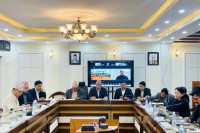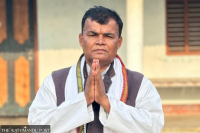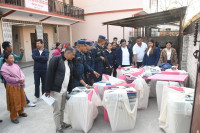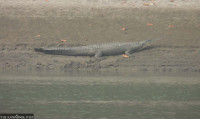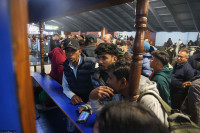National
Former Maoist child soldiers hope for justice with court set to hear petition
Victims’ advocate says they want justice, not just a verdict.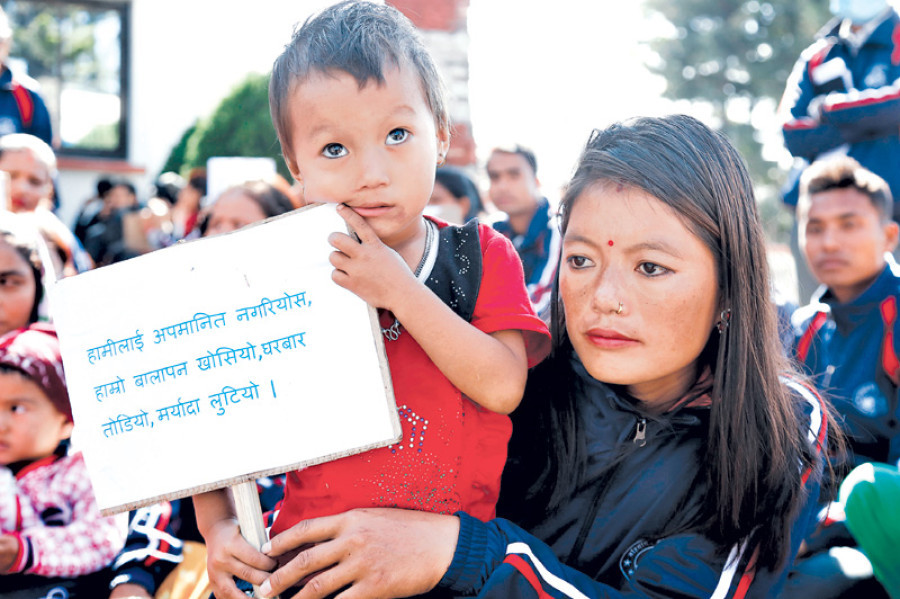
Post Report
As the Supreme Court prepares to start final hearing of their petition, the former Maoist minor soldiers are hopeful of justice after years of indifference of successive governments to their plights.
A full bench of the top court is scheduled to start hearing on the petition that demands prosecution of the then Maoist supreme commander Pushpa Kamal Dahal and the erstwhile ‘people’s government’ chief Baburam Bhattarai. Both politicians are the country’s former prime ministers.
“Neither the government was concerned about our demands, nor did the amendment to the Enforced Disappearances Enquiry, Truth and Reconciliation Commission Act give any hope for justice,” said Lenin Bista, founding chair of the Discharged People’s Liberation Army, at an interaction on Thursday. “There was no alternative to knocking the Supreme Court’s door.”
Nine former child combatants led by Bista on May 3o, 2023 went to the top court with the petition. The court administration refused to register the petition claiming it falls under the jurisdiction of the Truth and Reconciliation Commission. They challenged the decision in the court and the petition was finally registered on June 11 after an order from a single bench of Justice Anand Mohan Bhattarai.
Conducting a periliminary hearing in the petition on June 13, 2o23, the top court issued a show cause notice against Dahal and Bhattarai demanding written clarifications why they should not be investigated in the matter. The final hearing is being held from July 31, nearly two years after the show cause was issued.
Senior advocate Bishnu Bhattarai, who is pleading on the victims’ behalf, said they expect justice, not just a verdict, from the top court. “The court’s track record on such issues is not very encouraging. Yet we believe justice will be delivered,” he said.
Legal experts say such use of minors is a violation of international human rights law, and a war crime. Though the amended Act provisions reparation for the ‘discharged combatants’, it does not explicitly talk about the minor soldiers.
The United Nations Mission in Nepal had listed 4,008 soldiers of the then rebel Maoist combatants as “verified minors and late recruits”, thereby ineligible for integration into security forces and stay in the cantonments.
During the verification process that ended in December 2007, 2,972 Maoist guerrillas were found to be child soldiers. The government had provided between Rs500,000 and Rs800,000 each to the combatants who chose voluntary retirement. However, those who were disqualified didn’t get any substantial support, except for Rs10,000 for the travel.
“There has been injustice against you [child soldiers]. Justice must be delivered,” said Sadhuram Sapkota, then joint-secretary at the Ministry of Peace, at the interaction.
He was a signatory for the government to a tripartite agreement including the United Nations and the Maoists to bid farewell to the minor soldiers and late recruits (the combatants recruited after the Comprehensive Peace Accord was signed).
Putting forth his views at the interaction, Sapkota said he had tried to convince then-peace minister Top Bahadur Rayamajhi that concerns of the minor soldiers must be heard.
“He said I don’t understand politics and asked me to focus on duties,” Sapkota said. “I firmly believe the former minor soldiers must be compensated for having their future ruined.”
After they were left out of the transitional justice process, the former Maoist child soldiers have resorted to various measures to bring the Maoist leadership before the law.
In June 2019, Bista petitioned the United Nations Office of the High Commissioner for Human Rights in Geneva, demanding justice for thousands of former child soldiers.
The petition was for the UN to ask the Nepal government to prioritise justice for former child soldiers, recalling that a serious crime had been committed against thousands of them as they were forced to fight on behalf of the Communist Party of Nepal-Maoist during the 10-year insurgency.




 23.27°C Kathmandu
23.27°C Kathmandu